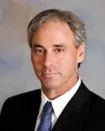In Morning Mist Holdings Limited v. Krys (In re Fairfield Sentry Limited), Case No. 11-4376, 2013 WL 1593348 (2d Cir. April 16, 2013), the United States Court of Appeals for the Second Circuit (the "Second Circuit") held that the relevant point in time for determining where the "center of main interests" ("COMI") of a debtor under chapter 15 of the United States Bankruptcy Code, 11 U.S.C. § 101 et seq. (the "Bankruptcy Code"), lies is the commencement of the case under chapter, and also held that a broad range of activities can properly be considered in determining a debtor's COMI. The Second Circuit's decision is significant in international insolvency cases because wind-down activities conducted in advance of a foreign insolvency proceeding can impact the COMI analysis.
The foreign debtor in this case is Fairfield Sentry Limited ("Sentry"), which became the subject of insolvency proceedings in the British Virgin Islands ("BVI") in July 2009. Sentry was the largest of the "feeder funds" that invested with Bernard Madoff Investment Securities LLC ("BLMIS") with 95 percent of its assets, totaling more than $7 billion, having been invested in BLMIS. In June 2010, the liquidator appointed in the BVI proceedings petitioned the United States Bankruptcy Court for the Southern District of New York for "recognition" of the BVI liquidation proceedings as "foreign main proceedings" under chapter 15 of the Bankruptcy Code. 2013 WL 1593348, at *1–2. The significance of a "foreign main proceeding" designation under chapter 15 is that certain key Bankruptcy Code provisions—including the stay provided by section 362—automatically apply, whereas in "foreign non-main proceedings," such relief is discretionary.
The Second Circuit affirmed the decision of the district court, which in turn, had affirmed the decision of the Bankruptcy Court (Lifland, J.). The Bankruptcy Court's analysis focused on the period of time between December 2008 (when Madoff was arrested and Sentry stopped doing business) and June 2010 (when the chapter 15 petition was filed). During this period of time, Sentry was winding down and was not conducting business. 2013 WL 1593348, at *3. In opposition, creditors who challenged foreign main proceeding status argued that Sentry's historical operations, spanning 18 years, should be considered, rather than the period of time shortly before the chapter 15 filing. In essence, the creditors' contention was that the COMI analysis should be the equivalent of a "principal place of business" analysis under principles of United States law. 2013 WL 1593348, at *4, 6.
The Second Circuit rejected that approach, focusing on the fact that the Bankruptcy Code was phrased in the present tense (and, thus, did not support a rule requiring a historical analysis for a COMI determination). See 11 U.S.C. § 1517(b). The Second Circuit's analysis of the relevant point in time for a COMI determination placed considerable weight on the United States Court of Appeals for the Fifth Circuit's (the "Fifth Circuit") analysis and reasoning in In re Ran, 607 F.3d 1017 (5th Cir. 2010), which likewise focused on the statutory text. In rejecting a historical approach, the Fifth Circuit noted that "a meandering and never-ending inquiry into the debtor's past interests could lead to a denial of recognition in a country where a debtor's interests are truly centered, merely because he conducted past activities in a country at some point well before the petition for recognition was sought." 2013 WL 1593348, at *5. With those principles in focus, and after noting that "[m]ost courts in this Circuit and through the country appear to have examined a debtor's COMI as of the time of the Chapter 15 petition," Id., the Second Circuit joined the majority, holding that "a debtor's COMI should be determined based on its activities at or around the time the Chapter 15 proceeding is filed," Id. at *8. Recognizing that such a targeted time frame can potentially lead to abuse, the Second Circuit included one key caveat—the analysis is "subject to an inquiry into whether the process has been manipulated" to alter the debtor's COMI in bad faith. Id.
As for the factors that can properly be considered in determining where a debtor's COMI is located, the Second Circuit observed that most courts have found a broad range of factors and activities relevant in the analysis. Moreover, the Second Circuit noted that federal courts have looked to international law on this issue, as directed by Congress through chapter 15. 2013 WL 1593348, at *8. The European Union Council Regulation enacting the Convention on Insolvency Proceedings provides that COMI "should correspond to the place where the debtor conducts the administration of his interests on a regular basis and is therefore ascertainable by third parties." Id. With these considerations in mind, as well as the fact that COMI is not defined in the Bankruptcy Code, the Second Circuit stated: "The absence of a statutory definition for a term that is not self-defining signifies that the text is open-ended, and invites development by courts, depending on facts presented, without prescription or limitation." 2013 WL 1593348, at *9.
The Second Circuit's focus on the point in time at which a chapter 15 proceeding is commenced is likely to impact not only chapter 15 cases in the Second Circuit, but also may be persuasive in other courts around the country. It joins the Fifth Circuit's approach, and is only the second Circuit Court to decide the issue. Likewise, the Second Circuit's broad interpretation of the factors to be considered in a COMI analysis is likely to impact new chapter 15 cases.
If you have any questions about this Alert, please contact Rudolph J. Di Massa, Jr.; William C. Heuer; Ron Oliner; Rosanne Ciambrone; any member of the Business Reorganization and Financial Restructuring Practice Group; or the attorney in the firm with whom you are regularly in contact.
This article is for general information and does not include full legal analysis of the matters presented. It should not be construed or relied upon as legal advice or legal opinion on any specific facts or circumstances. The description of the results of any specific case or transaction contained herein does not mean or suggest that similar results can or could be obtained in any other matter. Each legal matter should be considered to be unique and subject to varying results. The invitation to contact the authors or attorneys in our firm is not a solicitation to provide professional services and should not be construed as a statement as to any availability to perform legal services in any jurisdiction in which such attorney is not permitted to practice.
Duane Morris LLP, a full-service law firm with more than 700 attorneys in 24 offices in the United States and internationally, offers innovative solutions to the legal and business challenges presented by today's evolving global markets. Duane Morris LLP, a full-service law firm with more than 700 attorneys in 24 offices in the United States and internationally, offers innovative solutions to the legal and business challenges presented by today's evolving global markets. The Duane Morris Institute provides training workshops for HR professionals, in-house counsel, benefits administrators and senior managers.


